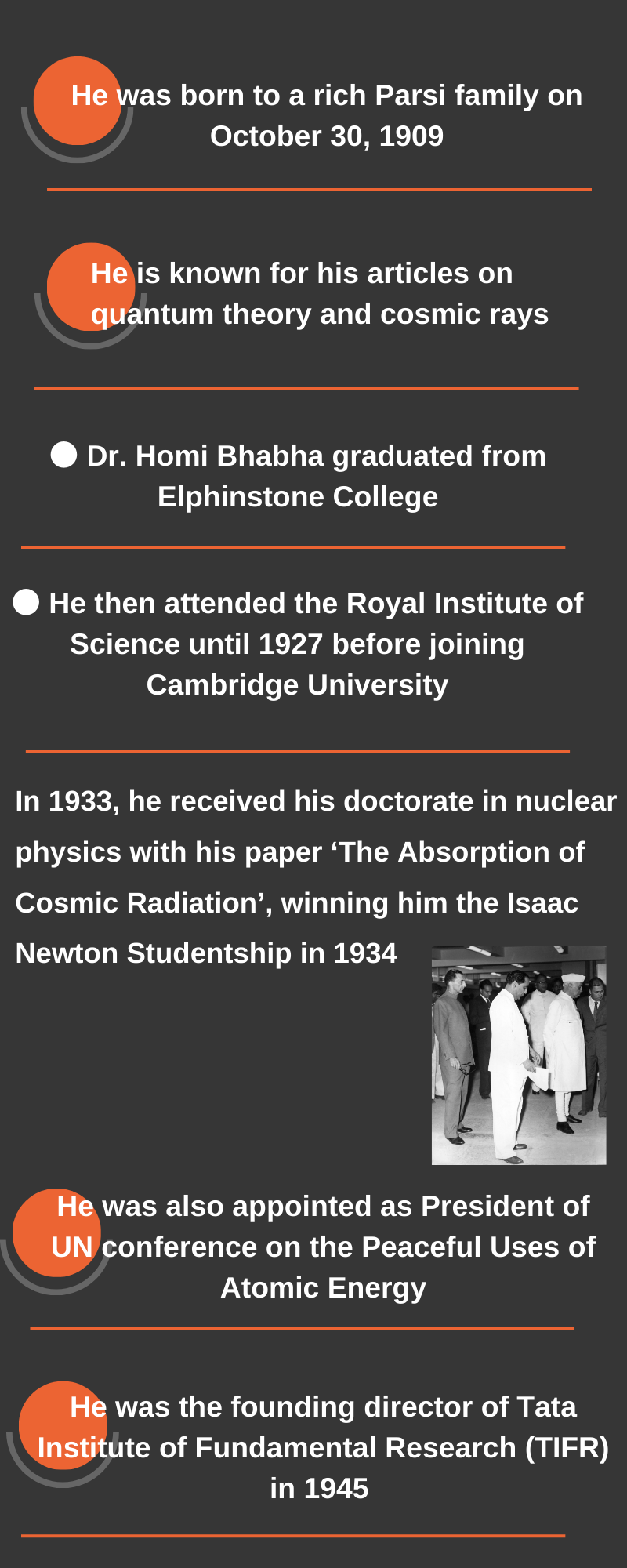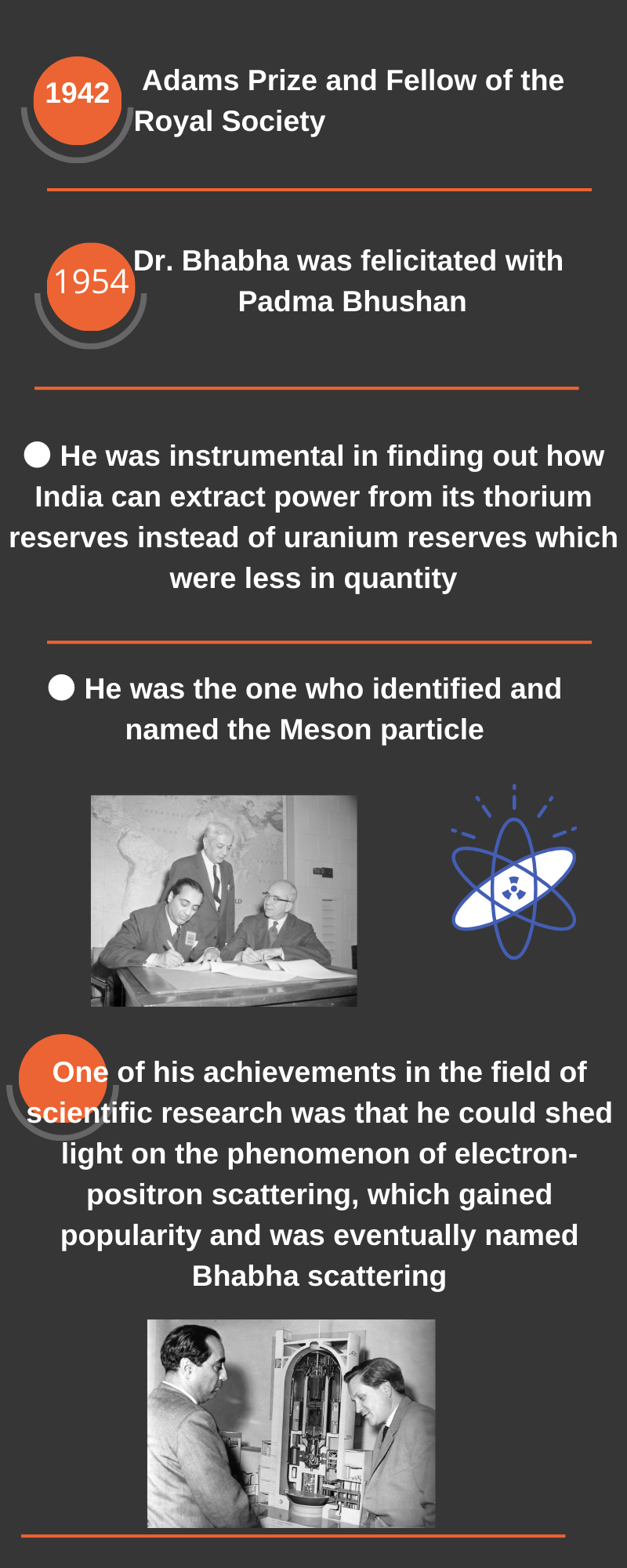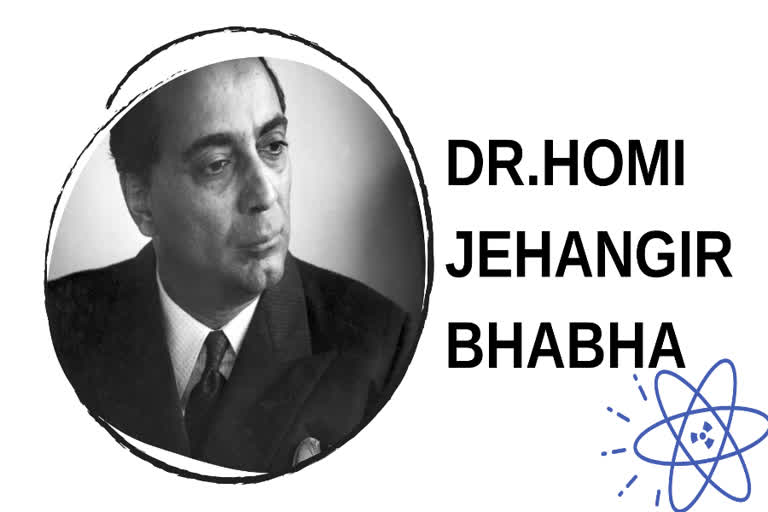Hyderabad:


- He was bestowed with many honorary degrees and awards from many prestigious universities.
- As a student, Homi worked with a Nobel Prize winner. He also worked with Niels Bohr in Copenhagen.
- In 1939, he came to India for a brief holiday and was unable to go back as World War II had started.
- He represented India at many conferences like International Atomic Energy Agency, etc.
- He was the founding director of the Tata Institute of Fundamental Research (TIFR) in 1945 and Trombay Atomic Energy Establishment (later renamed Bhabha Atomic Research Centre, by Prime Minister Indira Gandhi, in his memory).
- He also worked with one of the German Physicists to develop the Cascade theory to understand cosmic radiations.
- He loved paintings, classical music, and opera among others. He used to live in a huge colonial bungalow in Malabar Hills. It was named Mehrangir.
Dr. Bhabha highlighted the need for laboratories and research facilities in nuclear science. With Dorabji Jamsetji Tata’s help and the Tata Trust, the Tata Institute of Fundamental Research was set up in Bombay in 1945.
Dr. Homi Bhabha was a skillful manager and it was due to his prominence, devotion, wealth, and comradeship with the then Prime Minister Jawaharlal Nehru that he could effectively voice the need to allocate adequate resources for the country’s scientific development. He also successfully led the first UN Conference which was held for the purpose of Peaceful Uses of Atomic Energy in Geneva, Switzerland in 1955.
One of his achievements in the field of scientific research was that he could shed light on the phenomenon of electron-positron scattering, which gained popularity and was eventually named Bhabha scattering.
Dr. Bhabha established the BARC Training School to cater to the manpower needs of atomic energy research and development. He emphasized the need for self-reliance in nuclear science and engineering.
Also Read: Remembering Dr. A.P.J. Abdul Kalam on his birth anniversary



